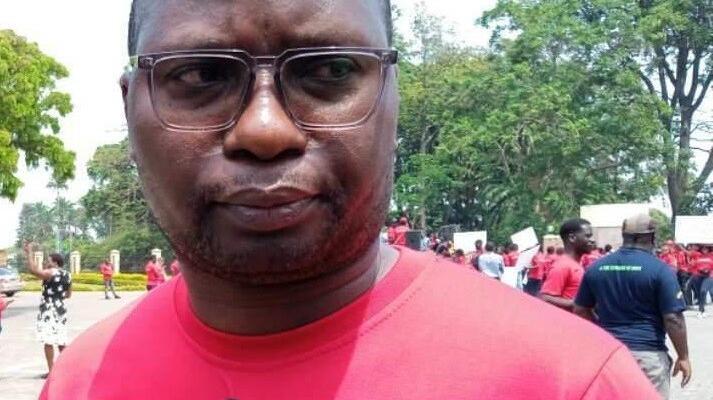
Youth in Malawi have asked authorities to bring forth some interventions that will help in addressing climate change dangers for humanity in the country.
The youth from a diversity grouping led by Jesuit Center for Ecology and Development (JCED), National Youth Network on Climate Change and CADECOM, on Friday stood in solidarity to sound the code red alarm in Blantyre.
According to JCED Project Coordinator Tione Mathews Phwandaphwanda, the code red for humanity was the climax of the Caravan of Hope where the youth toured some districts which were hit by Cyclone Freddy.
Phwandaphwanda said the Caravan of Hope tour was aimed at generating evidence on how climate change and in particular Cyclone Freddy impacted lives in the country.
Commemorating the International Day on Disaster Risk Reduction on Friday, the youth marched to some areas which were hit by cyclone Freddy in the city where Alarm Bells for Climate Emergency and Ambitious Action were rang.
The youth later delivered a petition to the Blantyre district council in which Malawi leaders are being asked to come up with some interventions that will address the dangers being caused by climate change.
In their petition, these Malawian youth said this danger has claimed lives, swept away households and caused rivers to swell up in different parts of the country, hence their demand for action.
“We are the youth of Malawi from a diversity grouping brought together by Jesuit Center for Ecology and Development, National Youth Network on Climate Change and CADECOM. We stand in solidarity to sound the code red alarm, for we are in great danger.
“These are a glimpses of catastrophes of what this danger has been able to cause across the country and we stand before you today to demand a call for immediate interventions to eradicate this danger,” said the youth in their petition to government.
Among others, the youth are demanding a loss and damage financing stream for Cyclone Freddy redress, targeting people that were affected by Cyclone Freddy which they say should prioritize house reconstruction, grants to revamp business and farm inputs to commence farming.
They have also demanded that systematic interventions be put in place to assess the resilience of communities to future climate induced disaster and has also asked authorities to expedite relocation of victims to safer places.
“We demand that timeframes be set for relocation of victims that are still in camps, but such has to be accompanied with full completion of houses that were pledged to the victims, with special case scenario of Ntauchira and Mchenga communities.
“We demand a review on all places that were deemed not fit for human settlement due to being at risk of disaster and explanation as to why settlement exists in such places in the first place,” reads another part of the petition.
Departments and agencies have since been asked to reflect the disaster bill in environmental management to facilitate disaster preparedness and response.
They have also demanded multichannel streaming of early warning systems to reach out to the diversity grouping to necessitate disaster preparedness.
The youth have since expressed commitment to championing different climate change initiatives to support government’s mandate, but have asked departments and agencies to be willing to meet them in the middle.
According to Julius Ng’oma who is the National Coordinator for Civil Society Network on Climate Change, the youth have made the demands because they are the ones who will experience the dangers for a longer period.
“The youth are driving this agenda because they are feeling the impacts now and they are going to feel the impacts even in the years to come. IPCC is predicting that the impacts of climate change will be more pronounced in the future because of the greenhouse gases we are putting in the atmosphere now. So, the youth are supposed to be at the center,” said Ng’oma.














